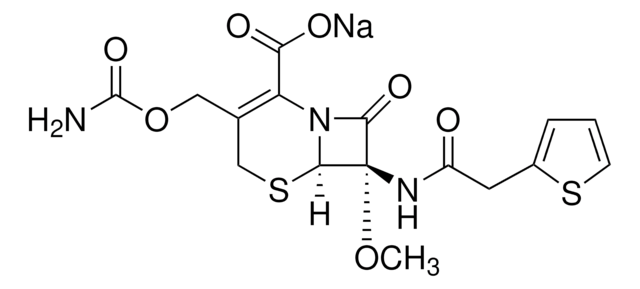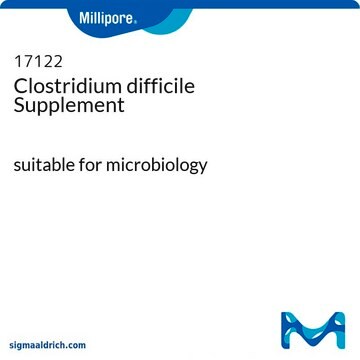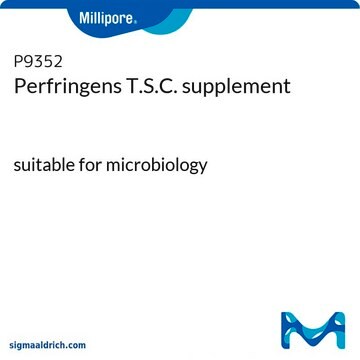C6880
D-Cycloserine
Synonym(s):
(R)-4-Amino-3-isoxazolidone, 4-Amino-3-isoxazolidinone
About This Item
Recommended Products
form
powder
mp
147 °C (dec.) (lit.)
antibiotic activity spectrum
Gram-negative bacteria
mycobacteria
Mode of action
cell wall synthesis | interferes
storage temp.
−20°C
SMILES string
N[C@@H]1CONC1=O
InChI
1S/C3H6N2O2/c4-2-1-7-5-3(2)6/h2H,1,4H2,(H,5,6)/t2-/m1/s1
InChI key
DYDCUQKUCUHJBH-UWTATZPHSA-N
Gene Information
human ... GRIN1(2902) , GRIN2A(2903) , GRIN2B(2904) , GRIN2C(2905) , GRIN2D(2906) , GRIN3A(116443) , GRIN3B(116444) , GRINA(2907)
mouse ... GRIN1(14810) , GRIN2A(14811) , GRIN2B(14812) , GRIN2C(14813) , GRIN2D(14814) , GRIN3A(242443) , GRIN3B(170483) , GRINA(66168)
rat ... GRIN1(24408) , GRIN2A(24409) , GRIN2B(24410) , GRIN2C(24411) , GRIN2D(24412) , GRIN3A(191573) , GRIN3B(170796) , GRINA(266668)
Looking for similar products? Visit Product Comparison Guide
General description
Application
- to study its effect on partner preference in Prairie Voles
- to study its effect on grooming behaviour of rats
- to determine its minimum inhibitory concentration (MIC) on 48 multidrug resistant tuberculosis (MDR-TB) isolates using the broth microdilution method
- to study its effect on mouse model of autism, using behavioural assays
Biochem/physiol Actions
Partial agonist at the glycine modulatory site of NMDA glutamatergic receptors; antibiotic against Gram-negative bacteria.
Mode of Resistance: D-Ala transport interference.
Storage Class Code
11 - Combustible Solids
WGK
WGK 2
Flash Point(F)
Not applicable
Flash Point(C)
Not applicable
Personal Protective Equipment
Certificates of Analysis (COA)
Search for Certificates of Analysis (COA) by entering the products Lot/Batch Number. Lot and Batch Numbers can be found on a product’s label following the words ‘Lot’ or ‘Batch’.
Already Own This Product?
Find documentation for the products that you have recently purchased in the Document Library.
Customers Also Viewed
Our team of scientists has experience in all areas of research including Life Science, Material Science, Chemical Synthesis, Chromatography, Analytical and many others.
Contact Technical Service









